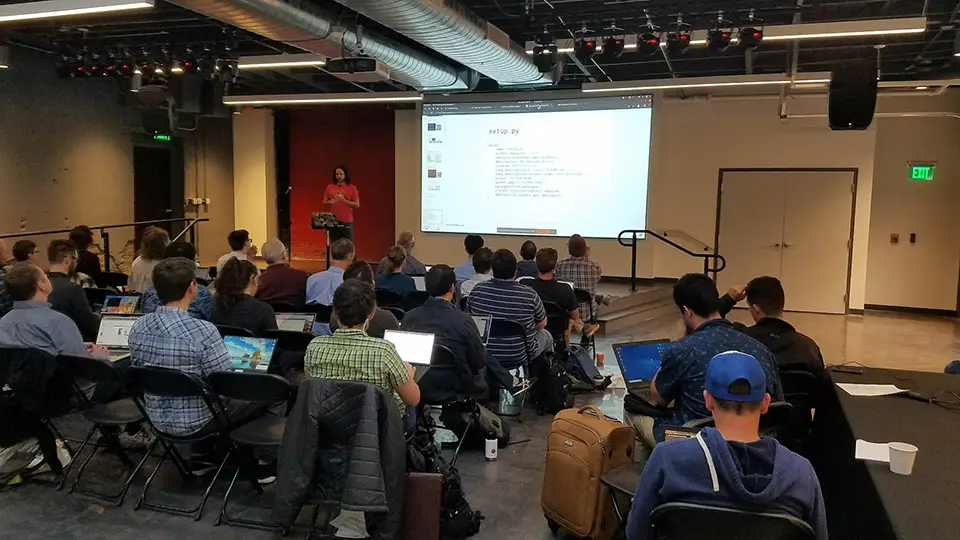In October 2019, U.S. IOOS�� and the Great Lakes Observing System hosted the first IOOS Code Sprint in Ann Arbor, Michigan. Bringing together over 45 software developers, data managers, and technical professionals from IOOS, Canadian IOOS, the National Science Foundation Ocean Observatories Initiative, Ocean Biodiversity Information System, and other organizations, the group focused on advancing capabilities to publish physical, chemical, and biological ocean and lake observations.
Participants joined one of several parallel work sessions, called “sprints,” on pre-planned coding or technical topics, including: packaging and release of the first ‘ioos_qc’ Python library for quality control of oceanographic observations; development of a mobile-friendly app for real-time data plotting from ERDDAP data servers; biological data management best practices such as format and display of biological datasets in Darwin Core schema; and leveraging commercial cloud services for IOOS workflows. Daily tutorials on coding techniques were presented to the full group each morning to develop a knowledge baseline.
The sprint led to the formation of both the IOOS BioData Standards technical working group and an interagency Earth Science Information Partners ‘Biological Data Standards’ cluster. Since the follow-on release of the ioos_qc library, several IOOS Regional Associations and OOI have implemented it operationally for real-time QA/QC of ocean data.

